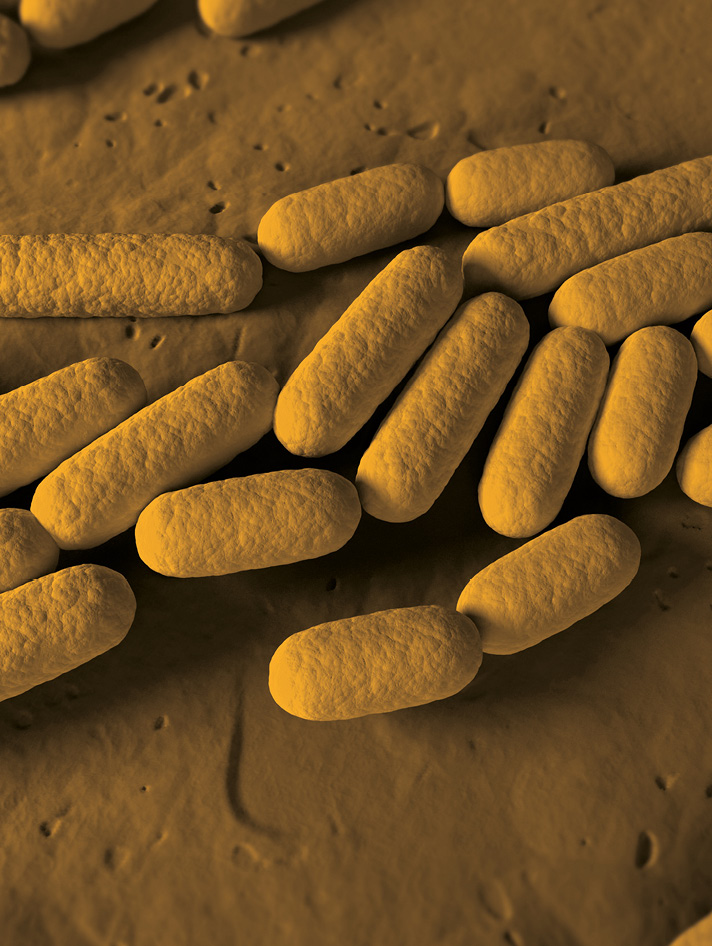 -
Volume 55,
Issue 6,
2005
-
Volume 55,
Issue 6,
2005
Volume 55, Issue 6, 2005
- Evolution, Phylogeny And Biodiversity
-
-
-
Culturing and environmental DNA sequencing uncover hidden kinetoplastid biodiversity and a major marine clade within ancestrally freshwater Neobodo designis
More LessBodonid flagellates (class Kinetoplastea) are abundant, free-living protozoa in freshwater, soil and marine habitats, with undersampled global biodiversity. To investigate overall bodonid diversity, kinetoplastid-specific PCR primers were used to amplify and sequence 18S rRNA genes from DNA extracted from 16 diverse environmental samples; of 39 different kinetoplastid sequences, 35 belong to the subclass Metakinetoplastina, where most group with the genus Neobodo or the species Bodo saltans, whilst four group with the subclass Prokinetoplastina (Ichthyobodo). To study divergence between freshwater and marine members of the genus Neobodo, 26 new Neobodo designis strains were cultured and their 18S rRNA genes were sequenced. It is shown that the morphospecies N. designis is a remarkably ancient species complex with a major marine clade nested among older freshwater clades, suggesting that these lineages were constrained physiologically from moving between these environments for most of their long history. Other major bodonid clades show less-deep separation between marine and freshwater strains, but have extensive genetic diversity within all lineages and an apparently biogeographically distinct distribution of B. saltans subclades. Clade-specific 18S rRNA gene primers were used for two N. designis subclades to test their global distribution and genetic diversity. The non-overlap between environmental DNA sequences and those from cultures suggests that there are hundreds, possibly thousands, of different rRNA gene sequences of free-living bodonids globally.
-
-
- Letters To The Editor
-
-
-
The preparation of the Approved Lists of Bacterial Names
More LessTo celebrate the 25th anniversary of the publication of the Approved Lists of Bacterial Names in 1980, the surviving editor Peter Sneath reflects on the conception, preparation and publication of this seminal document in the nomenclature of not just prokaryotes but all organisms.
-
-
- International Committee On Systematics Of Prokaryotes
-
- Minutes
- Errata
-
Volumes and issues
-
Volume 74 (2024)
-
Volume 73 (2023)
-
Volume 72 (2022 - 2023)
-
Volume 71 (2020 - 2021)
-
Volume 70 (2020)
-
Volume 69 (2019)
-
Volume 68 (2018)
-
Volume 67 (2017)
-
Volume 66 (2016)
-
Volume 65 (2015)
-
Volume 64 (2014)
-
Volume 63 (2013)
-
Volume 62 (2012)
-
Volume 61 (2011)
-
Volume 60 (2010)
-
Volume 59 (2009)
-
Volume 58 (2008)
-
Volume 57 (2007)
-
Volume 56 (2006)
-
Volume 55 (2005)
-
Volume 54 (2004)
-
Volume 53 (2003)
-
Volume 52 (2002)
-
Volume 51 (2001)
-
Volume 50 (2000)
-
Volume 49 (1999)
-
Volume 48 (1998)
-
Volume 47 (1997)
-
Volume 46 (1996)
-
Volume 45 (1995)
-
Volume 44 (1994)
-
Volume 43 (1993)
-
Volume 42 (1992)
-
Volume 41 (1991)
-
Volume 40 (1990)
-
Volume 39 (1989)
-
Volume 38 (1988)
-
Volume 37 (1987)
-
Volume 36 (1986)
-
Volume 35 (1985)
-
Volume 34 (1984)
-
Volume 33 (1983)
-
Volume 32 (1982)
-
Volume 31 (1981)
-
Volume 30 (1980)
-
Volume 29 (1979)
-
Volume 28 (1978)
-
Volume 27 (1977)
-
Volume 26 (1976)
-
Volume 25 (1975)
-
Volume 24 (1974)
-
Volume 23 (1973)
-
Volume 22 (1972)
-
Volume 21 (1971)
-
Volume 20 (1970)
-
Volume 19 (1969)
-
Volume 18 (1968)
-
Volume 17 (1967)
-
Volume 16 (1966)
-
Volume 15 (1965)
-
Volume 14 (1964)
-
Volume 13 (1963)
-
Volume 12 (1962)
-
Volume 11 (1961)
-
Volume 10 (1960)
-
Volume 9 (1959)
-
Volume 8 (1958)
-
Volume 7 (1957)
-
Volume 6 (1956)
-
Volume 5 (1955)
-
Volume 4 (1954)
-
Volume 3 (1953)
-
Volume 2 (1952)
-
Volume 1 (1951)
Most Read This Month


